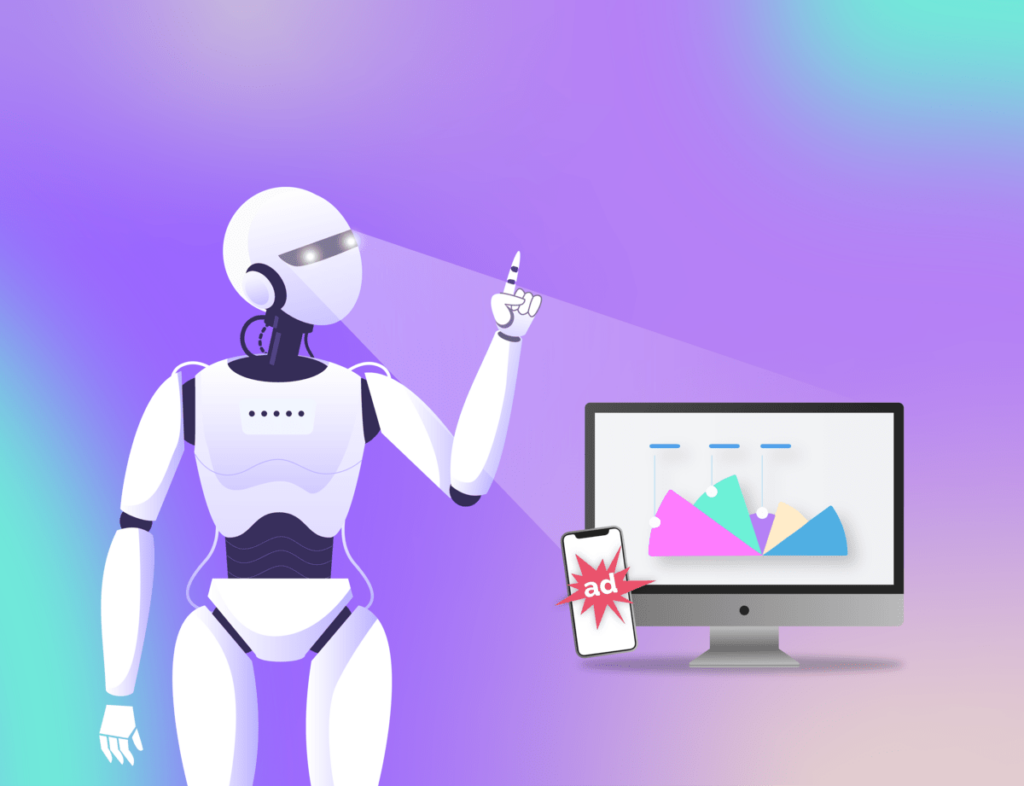In the ever-evolving world of advertising, artificial intelligence (AI) is taking on a new role: managing ad campaigns with minimal human intervention. This shift towards autonomous ad campaigns is transforming how businesses connect with their audiences, offering both exciting opportunities and unique challenges. Let’s dive into what autonomous ad campaigns are, how they work, and what this means for the future of advertising.
What Are Autonomous Ad Campaigns?
Autonomous ad campaigns are advertising efforts where AI systems handle most, if not all, of the campaign management tasks. Unlike traditional campaigns, where human marketers make decisions about targeting, budgeting, and creative elements, autonomous campaigns rely on AI to make these choices.
AI systems use algorithms and data to automatically adjust and optimize various aspects of an ad campaign. This includes selecting the right audience, setting budgets, and even creating ad content. The goal is to improve efficiency, reduce manual effort, and increase the effectiveness of ads.
How Do Autonomous Ad Campaigns Work?
1. Data Collection and Analysis
The process begins with data collection. AI systems gather data from various sources, such as user behavior, demographics, and past campaign performance. This data is then analyzed to understand trends and patterns.
For example, if the AI notices that users who engage with certain types of content are more likely to convert, it will use this information to target similar users with similar content.
2. Automated Decision-Making
Based on the data analysis, the AI makes decisions about how to run the ad campaign. This includes:
- Targeting: The AI determines which audience segments are most likely to respond to the ads.
- Budget Allocation: It decides how to allocate the budget across different channels and ad formats to maximize return on investment.
- Creative Optimization: The AI can also test different ad creatives and adjust them in real time to see which ones perform best.
3. Continuous Optimization
One of the key advantages of AI in ad campaigns is its ability to continuously optimize. Unlike human-run campaigns, which may require manual adjustments, AI systems can make changes instantly based on real-time data. For instance, if an ad is not performing well, the AI can quickly shift resources to more effective ads or tweak the messaging to improve results.
Benefits of Autonomous Ad Campaigns
1. Increased Efficiency
By automating routine tasks, AI reduces the time and effort required to manage ad campaigns. This allows marketers to focus on strategy and creative aspects, rather than day-to-day management.
2. Real-Time Adjustments
AI can make real-time adjustments based on live data. This means that if an ad is underperforming or a new trend emerges, the AI can quickly adapt to improve campaign performance.
3. Enhanced Targeting
AI’s ability to analyze large amounts of data leads to more precise targeting. Ads can be tailored to specific audience segments, increasing the likelihood of engagement and conversions.
4. Cost Savings
With AI managing and optimizing campaigns, businesses can potentially reduce their advertising costs. By efficiently allocating budgets and avoiding wasted ad spend, AI can help achieve better results with fewer resources.
Challenges and Considerations
1. Lack of Human Touch
While AI can handle many tasks, it may lack the nuanced understanding of human emotions and creativity. This can sometimes result in ads that feel impersonal or disconnected from the target audience.
2. Data Privacy Concerns
AI relies heavily on data in order to function effectively. As data privacy regulations become stricter, businesses must ensure they are using data ethically as well as in compliance with laws.
3. Over-Reliance on Technology
There is indeed a risk of becoming too dependent on AI for ad management. While AI can provide valuable insights and automate tasks, human oversight is still crucial to ensure that campaigns align with brand values and goals.
4. Complexity and Transparency
AI systems can be complex and sometimes operate as “black boxes,” thus meaning their decision-making processes are not always transparent. This can make it challenging for marketers to understand how decisions are made and to trust the outcomes.
The Future of Autonomous Ad Campaigns
As AI technology continues to advance, the role of autonomous ad campaigns is likely to grow. Future developments may include even more sophisticated algorithms that can predict trends, create highly personalized content, and enhance user experiences.
However, it’s important for businesses to balance the use of AI with human insights and creativity. The most successful ad campaigns will likely be those that combine the efficiency of AI with the emotional intelligence and strategic thinking of human marketers.
Conclusion

In conclusion, autonomous ad campaigns represent a significant leap forward in advertising technology. By leveraging AI to manage and optimize campaigns, businesses can indeed achieve greater efficiency, better targeting, and potentially lower costs. As this technology evolves, it will be crucial to navigate the challenges and further ensure that AI is used in a way that aligns with ethical standards and human values.
Frequently Asked Questions (FAQs)
1. What are autonomous ad campaigns?
Autonomous ad campaigns use AI in order to manage and optimize advertising efforts with minimal human intervention. AI systems handle tasks such as targeting, budget allocation, and ad content creation based on real-time data and algorithms.
2. How does AI improve the efficiency of ad campaigns?
AI improves efficiency by automating routine tasks, making real-time adjustments, and also optimizing ad performance based on continuous data analysis. This therefore reduces manual effort and helps achieve better results with fewer resources.
3. What are the main benefits of using autonomous ad campaigns?
The main benefits include increased efficiency, real-time optimization, enhanced targeting, as well as cost savings. AI can quickly adapt to changes and allocate budgets effectively, leading to better overall campaign performance.
4. Are there any challenges with autonomous ad campaigns?
Yes, challenges include the lack of human touch, data privacy concerns, over-reliance on technology, and also complexity in understanding AI decision-making processes. Balancing AI capabilities with human insights is indeed crucial for successful campaigns.


